Water Heater Repair: Essential Murfreesboro Troubleshooting Tips
Experiencing trouble with your residential water heater can be a source of frustration and financial strain. Our comprehensive guide offers useful tips and expert repair suggestions to assist you in resolving common issues with your water heater. From dealing with the persistent issue of a pilot light that refuses to stay lit to addressing sudden leaks, we have the solutions you need. Don't let water heater problems disrupt your daily routine - trust our guide to provide the answers and assistance you require.

How does a water heater work?
A water heater is a crucial appliance in our homes that provides hot water for various tasks like bathing, washing dishes, and laundry. Understanding how a water heater works is essential for maintaining its efficiency and addressing any issues that may arise. A typical water heater consists of a tank, heating elements or a burner, temperature and pressure relief valve, a thermostat, and inlet/outlet pipes. The basic principle behind its functionality is simple - it heats and stores water for later use. When you turn on a hot water tap, cold water enters the tank through the inlet pipe. As the tank fills, the heating elements or burner heat the water to the desired temperature set on the thermostat. Once the water reaches the set temperature, the heating elements or burner turn off. As hot water is drawn from the tank through the outlet pipe, cold water flows into the tank to replace it. This cold water triggers the heating elements or burner to turn on again, maintaining the set temperature. The temperature and pressure relief valve help release excess pressure and prevent the tank from exploding in case of overheating. Regular maintenance, including flushing the tank and checking for leaks or faulty components, can help prolong the lifespan of a water heater and ensure it functions optimally.

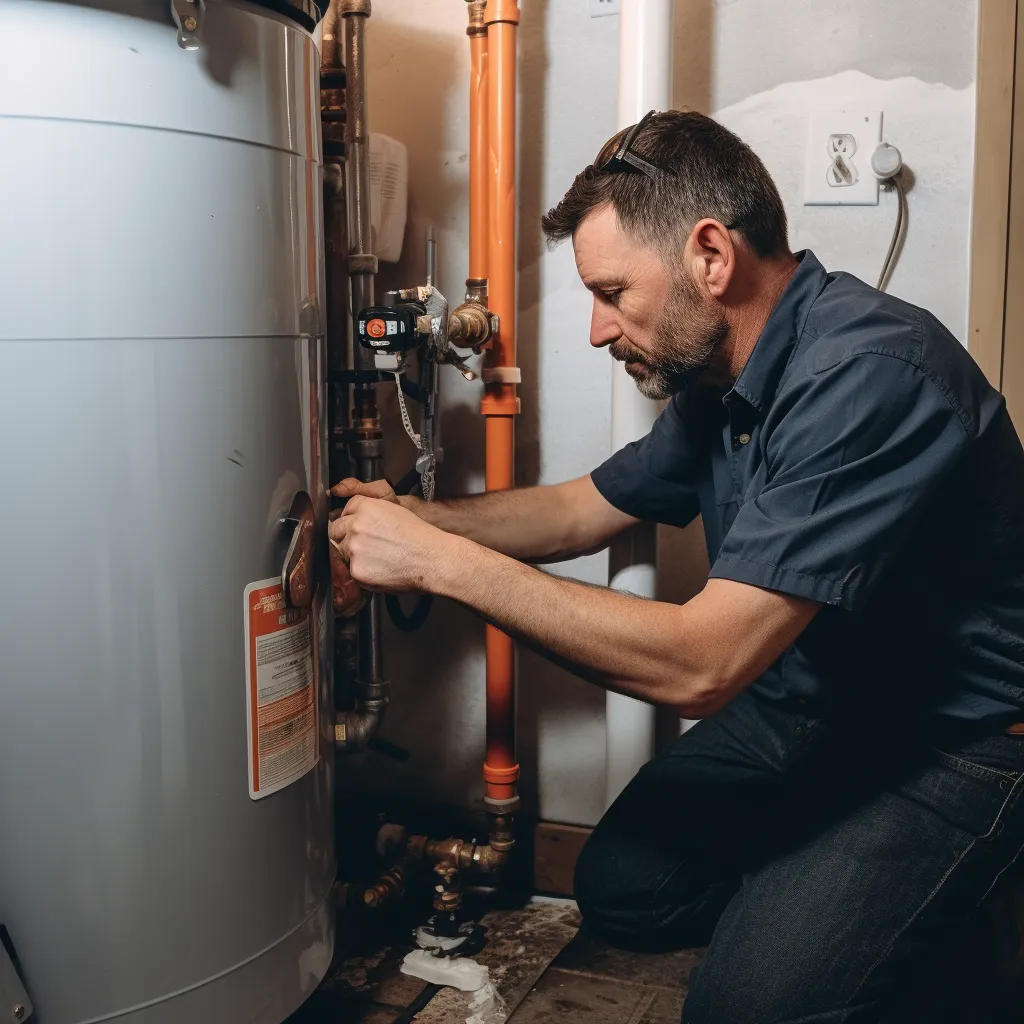
Proper water heater maintenance is essential
When it comes to maintaining your water heater, it's important to prioritize regular upkeep in order to prevent any potential breakdowns and ensure a consistent supply of hot water. One simple yet effective measure you can take is to schedule an annual draining and flushing of your water heater. This process helps to remove any sediment that may have built up over time, which can lead to decreased efficiency and even damage to your unit. By making this a part of your regular maintenance routine, you can significantly prolong the lifespan of your water heater. Another critical aspect of water heater maintenance is inspecting the temperature and pressure relief valve. This valve plays a crucial role in regulating and maintaining the appropriate pressure and temperature levels within your unit. By inspecting this valve regularly, you can identify any issues or malfunctions before they become more serious problems. This ensures that your water heater is not only functioning efficiently but also prioritizes your safety. By following these simple yet essential maintenance practices, you can ensure that your water heater is always ready to provide hot water whenever you need it. So don't overlook the importance of regular maintenance for your water heater and make it a priority within your household.
Common signs you need a new water heater
If you are experiencing any of the following signs, it may indicate that your water heater needs to be repaired or replaced:
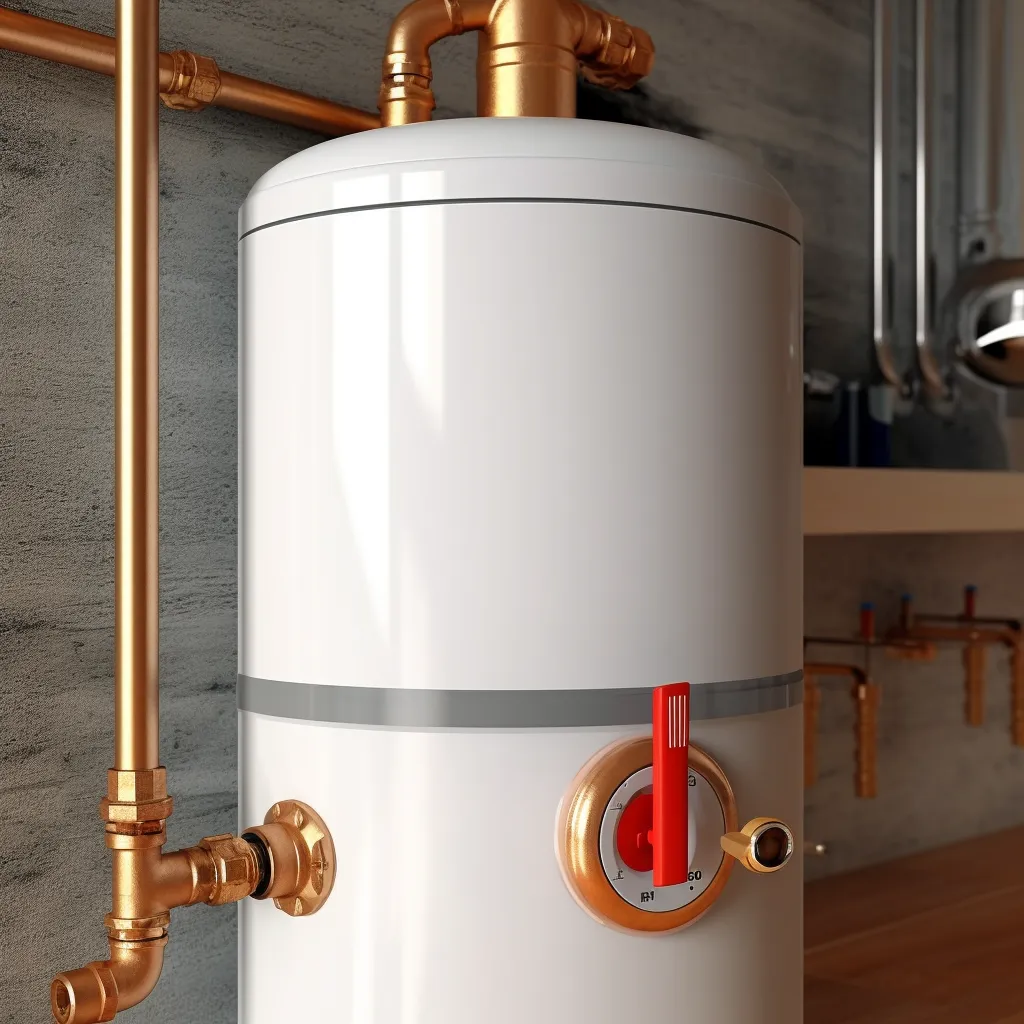
Age: If your water heater is over 10 years old, it may be time to consider a replacement. Older units are more prone to breakdowns and inefficiency.
Inadequate Hot Water Supply: If you notice a decrease in hot water supply or find that your water never gets as hot as before, it could be a sign that your water heater is wearing out and needs attention.
Strange Noises: Unusual noises, such as banging, popping, or rumbling sounds, coming from your water heater may indicate the presence of sediment buildup. This can lower the efficiency and lifespan of your unit.
Leaks: Any visible signs of leaks around your water heater should be taken seriously. Leaks can lead to water damage and may suggest a crack or defect in the tank, pipes, or fittings.
Rusty Water: If you notice rusty or discolored water when using hot water taps, it could mean corrosion inside your water heater tank. This is a concerning sign that should be addressed promptly.
Foul Smell: A rotten egg or sulfur-like smell coming from your hot water taps may indicate a bacterial infection in your water heater. This can affect water quality and should be dealt with immediately.
Regardless of the specific signs you notice, it is crucial to have a professional plumber assess your water heater if you suspect a problem. They can determine whether a repair or a water heater replacement is necessary to ensure optimal performance and prevent further issues.
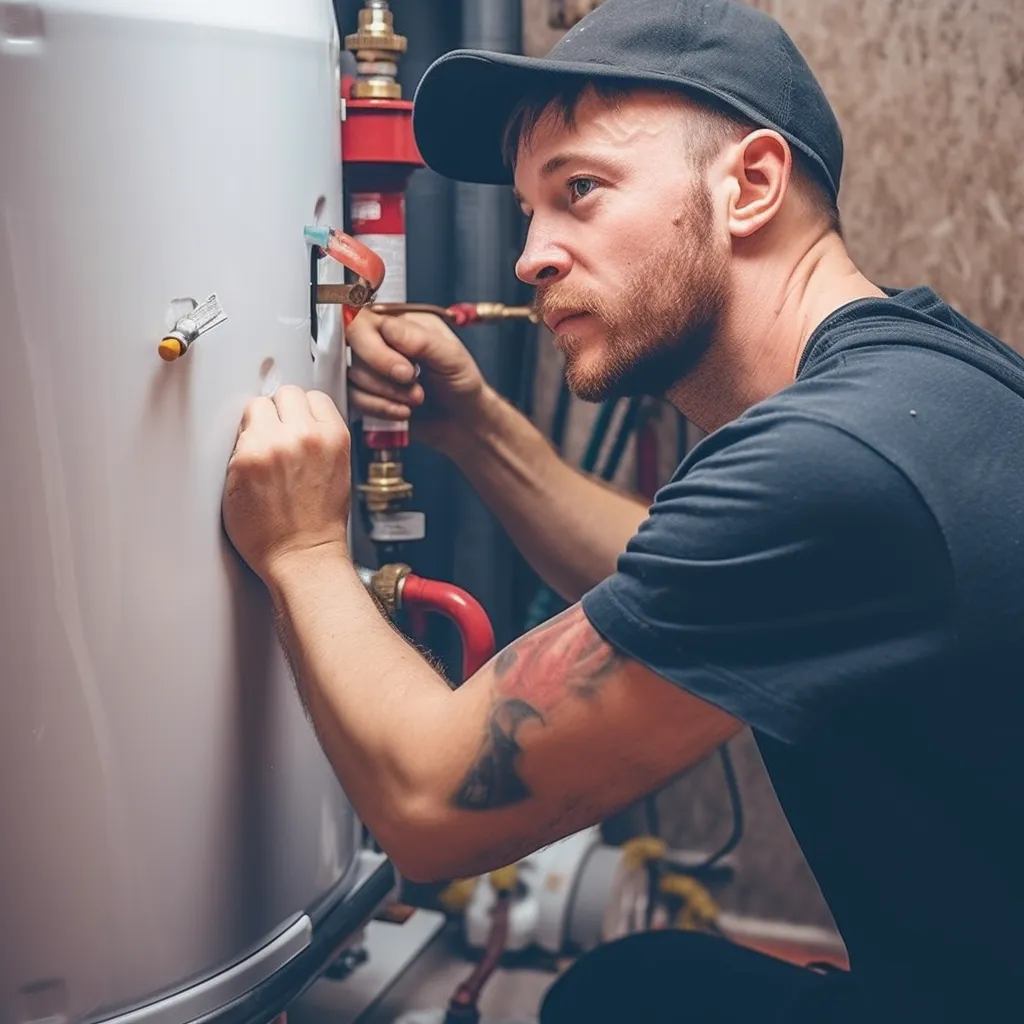
What are the possible causes of water heater malfunctions?
Water heater malfunctions can occur due to various reasons. Understanding these causes is essential for prompt repairs and ensuring optimal functionality. Some possible causes of water heater malfunctions include:
Age: Over time, water heaters naturally degrade and become less efficient. Aging components can lead to leaks, reduced heating capacity, and other issues.
Sediment buildup: Sediments, such as minerals and debris, can accumulate at the bottom of the water heater tank. This buildup insulates the heating element, making it less efficient and potentially causing overheating or even tank failure.
Corrosion: Corrosion, often caused by chemical reactions within the water tank, can weaken the metal and result in leaks. Corrosion usually occurs when the sacrificial anode rod, designed to protect the tank, is depleted over time.
Faulty thermostat: A malfunctioning thermostat may result in inaccurate temperature readings or inconsistent heating. This can lead to scalding hot water, no hot water, or inadequate heating.
Pressure issues: Excessive pressure often caused by a faulty pressure relief valve can damage the water heater, leading to leaks or tank ruptures.
Electrical or gas supply problems: Water heaters powered by electricity or gas can experience issues with the power supply. Faulty wiring, blown fuses, or gas valve problems can disrupt the heating process.
Improper installation or maintenance: If a water heater is installed or maintained improperly, it can result in various problems. Poorly sealed connections, incorrect venting, or insufficient insulation can impact performance and longevity.
High mineral content in water: Water with a high mineral content, commonly referred to as hard water, can contribute to sediment buildup and scale formation inside the tank, reducing efficiency and affecting the lifespan of the water heater.
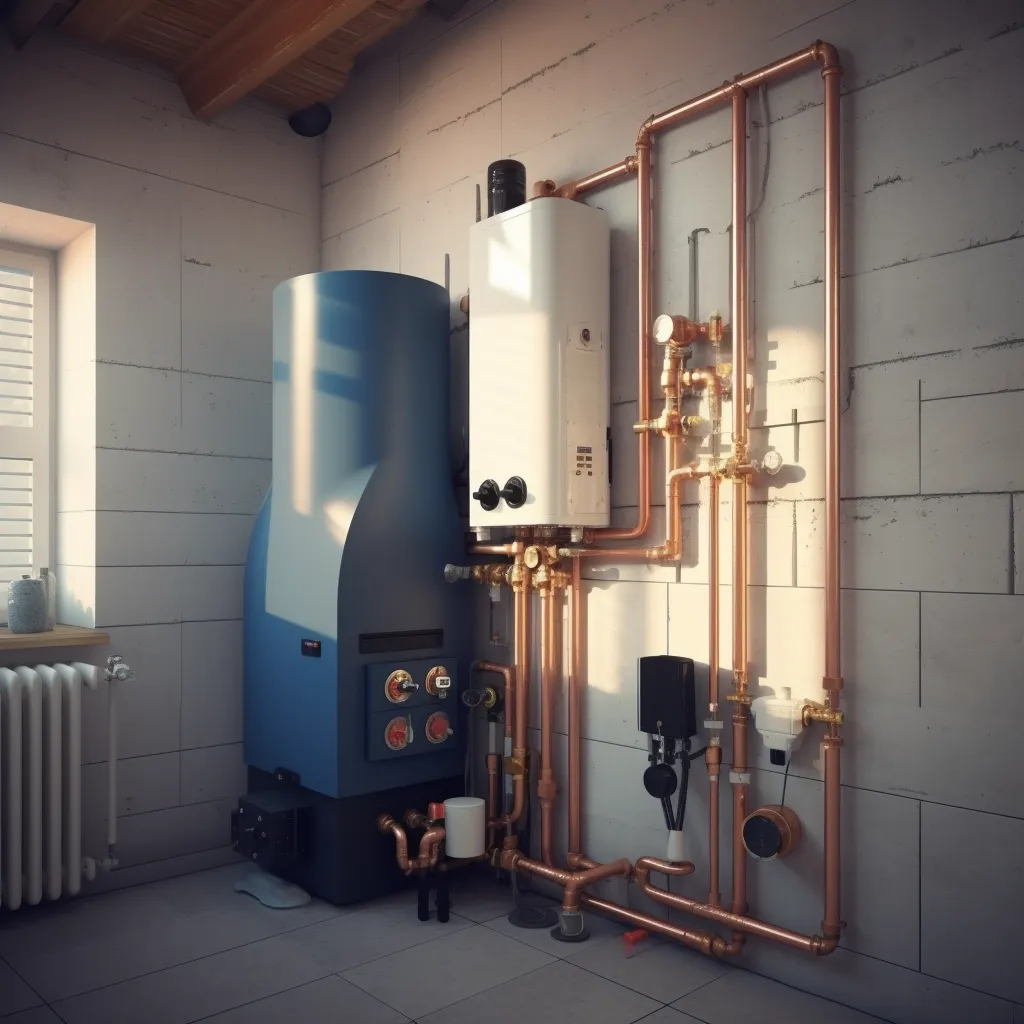
Check the temperature setting on your water heater
It's essential to start with a simple troubleshooting step: checking the temperature setting on your unit. Doing so can help identify potential problems and determine if a replacement is necessary. To check the temperature setting on your water heater, start by locating the thermostat. In most water heaters, it's positioned on the front of the unit, toward the bottom. Once you've found it, take note of the current temperature setting. The ideal temperature for most households is around 120 degrees Fahrenheit. If your water heater is set significantly higher or lower than this, it could lead to various issues. A temperature setting that's too high may increase the risk of scalding, while a setting that's too low can result in lukewarm or cold water. If your current temperature setting seems appropriate, but you're still experiencing problems, it's advisable to consult a professional for further assistance. They can evaluate your water heater and help determine if a replacement is necessary. When it comes to water heater replacemen, it's important to consider hiring a trusted and experienced professional. They can guide you through the process, ensuring you select a new unit that meets your needs and provide expert installation to ensure optimal performance.
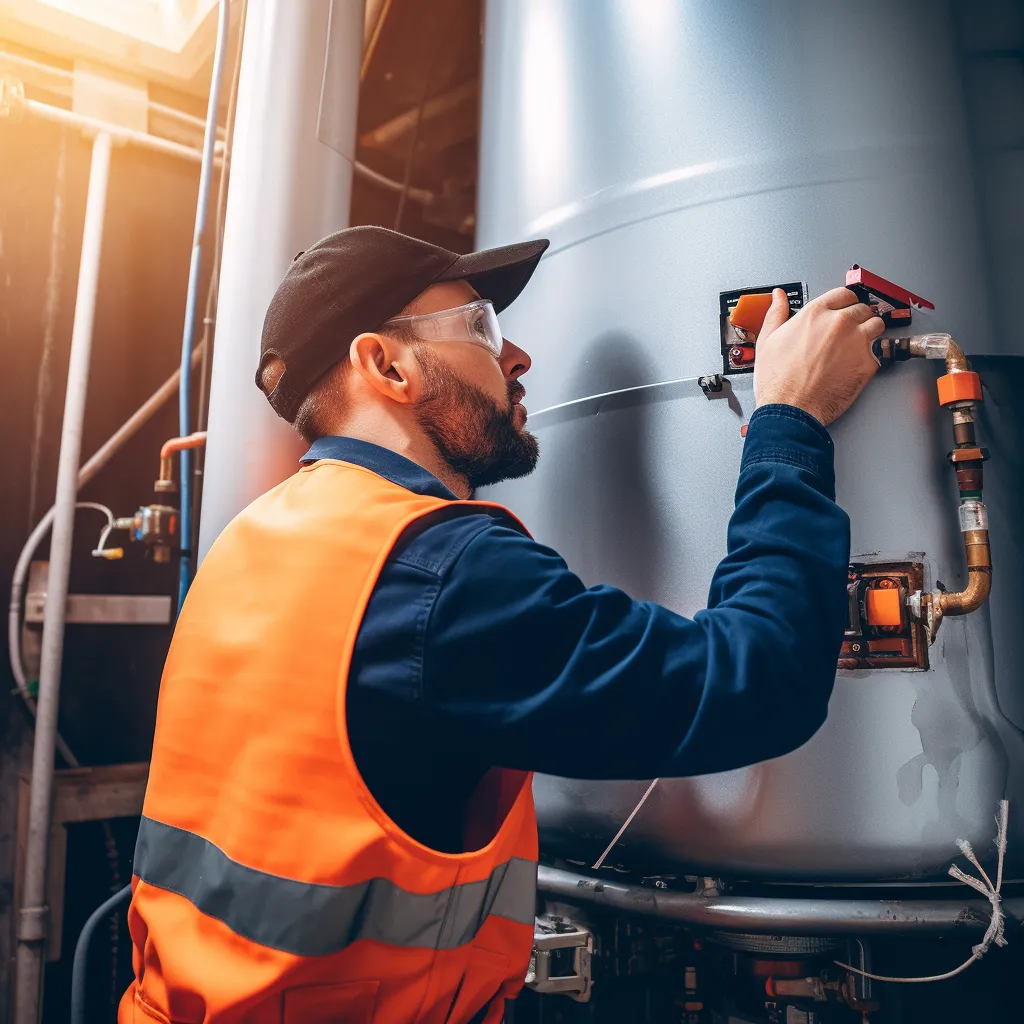
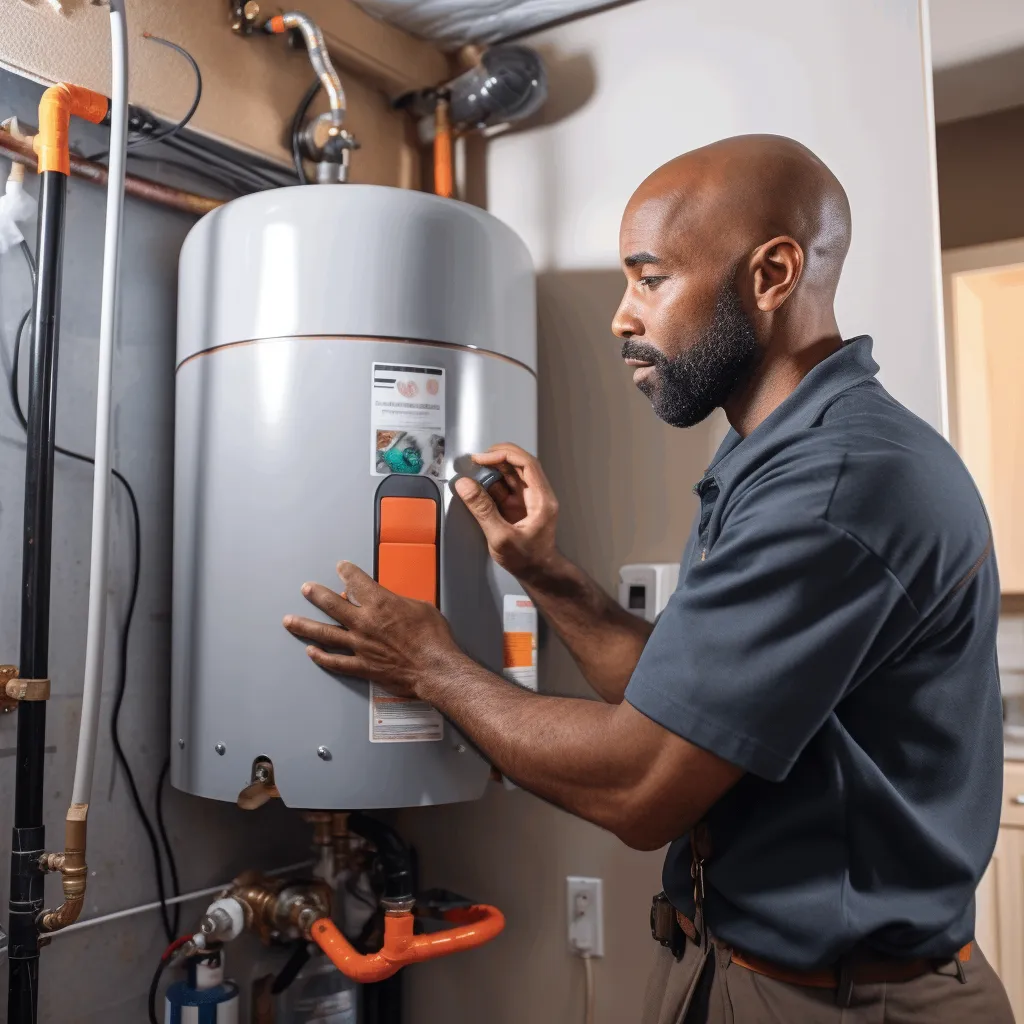
Perform regular visual inspections
To ensure the continued functionality and safety of your hot water supply, it is crucial to pay attention to visual signs and unusual sounds. Perform regular visual inspections of your water heater for signs of corrosion, leaks, or any noticeable damage. These issues can indicate a need for a replacement. Additionally, be mindful of strange noises emanating from your water heater or if it takes longer than usual for the water to heat up. These warning signs should not be overlooked, as they can lead to further damage and potentially hazardous situations. When you notice any of these issues, it is vital to act promptly by contacting a professional for water heater replacement services in Murfreesboro. Seeking professional help ensures that the replacement process is done correctly and efficiently. Ignoring these warning signs can result in more extensive damage and inconvenience in your daily life.

Test the water heater pressure relief valve to make sure it works
Ensuring the functionality of the pressure relief valve is crucial. Regular testing of this valve is essential to maintain the safety and efficiency of your water heater system. By prioritizing this step during the replacement process, you can identify and address any potential issues promptly. Proactive maintenance and replacement of vital components like the pressure relief valve can prevent hazards and contribute to the longevity of your new water heater.
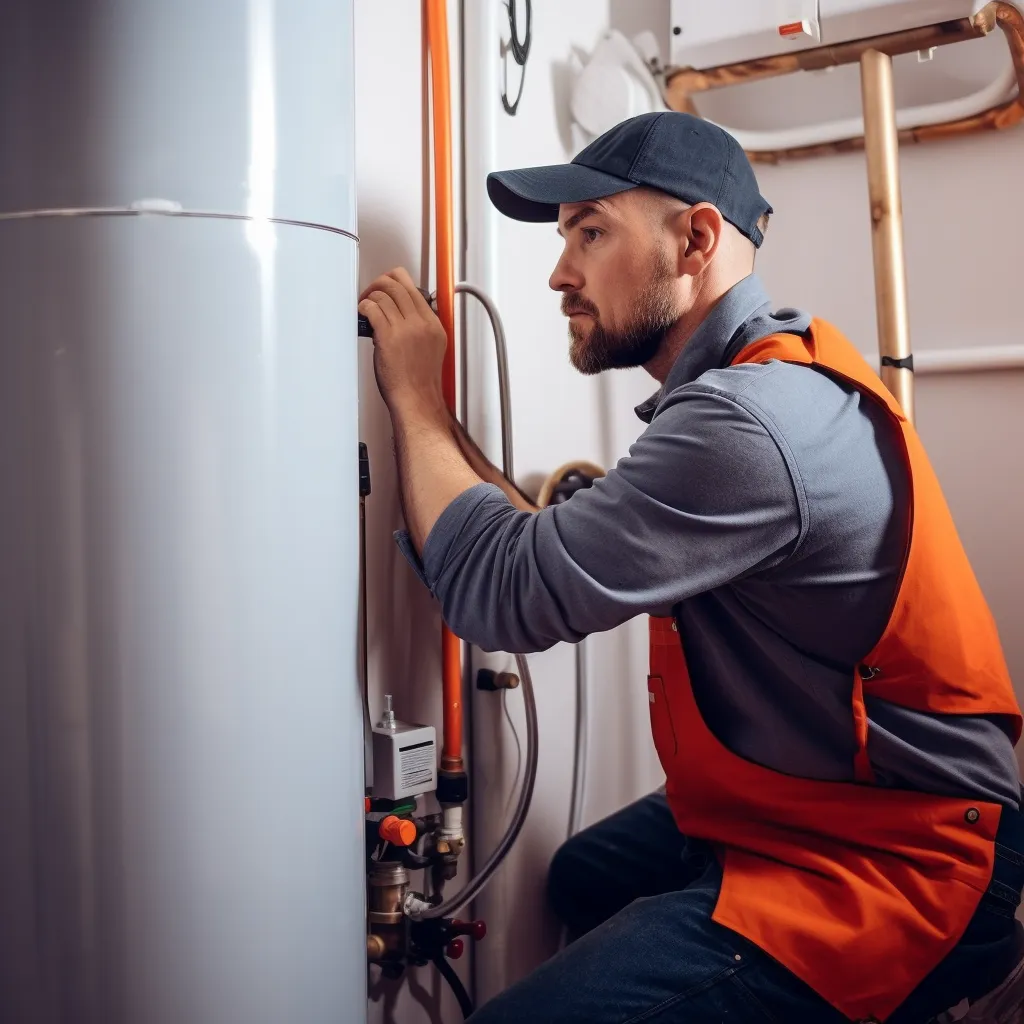
Check for signs of rust and corrosion around the water heater tank
When inspecting your water heater tank, it is important to check for signs of rust and corrosion. Rust can develop both on the inside and outside of the tank, while corrosion typically occurs on the fittings and connections. Detecting these signs early on is crucial as it can help prevent further damage and potential leaks. If you notice any rust or corrosion, it may be a sign that your water heater is deteriorating and in need of replacement. Consider reaching out to a professional for water heater replacement services to ensure your home's hot water needs are met efficiently and safely.
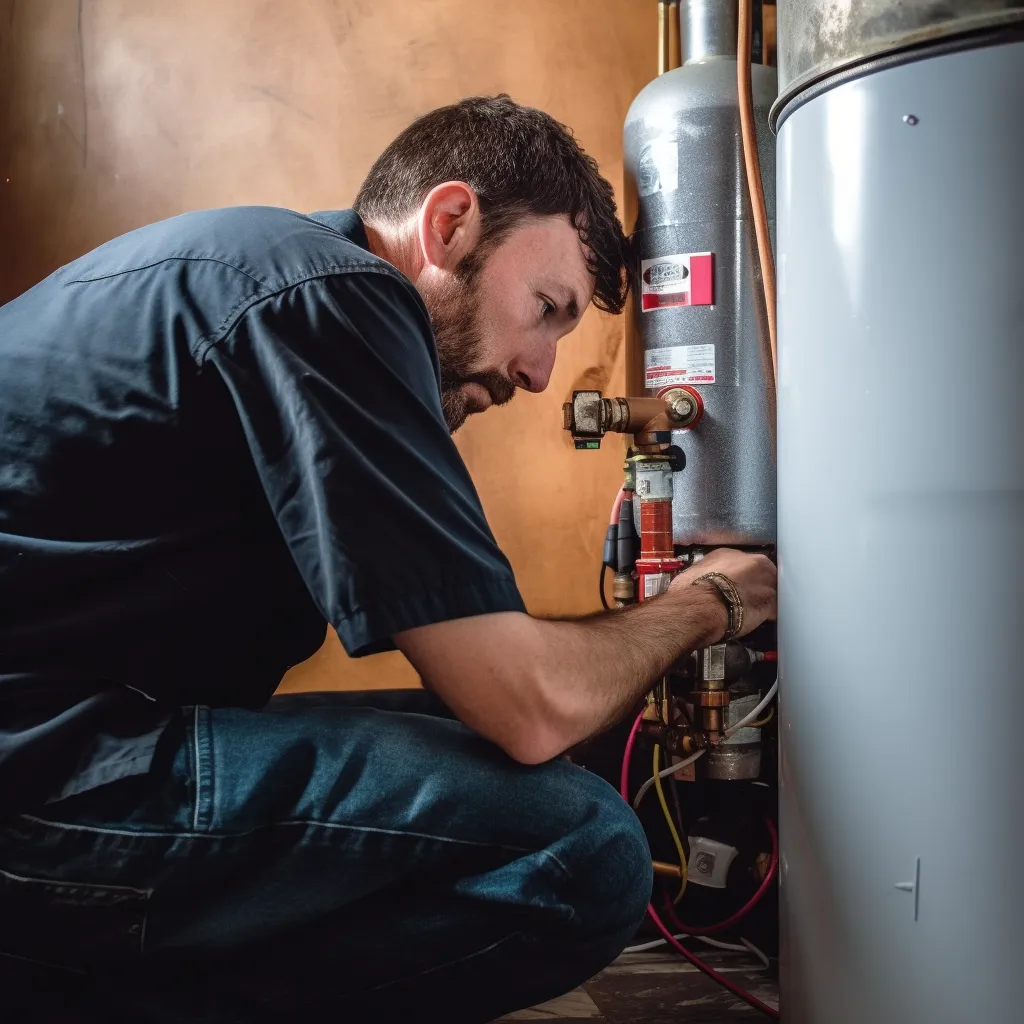
Water heater connections should be tight and secure
A tight and secure connection is essential for the efficient operation and longevity of your new water heater. By paying attention to these connections, you can prevent leaks and other potential issues that may arise in the future. When installing a water heater, it is important to properly connect the water supply lines, as well as the hot and cold water connections. Tightening these connections helps to avoid any potential leaks or water damage in your home. It is also important to ensure that the temperature and pressure relief valve, as well as the drain valve, are securely connected to the water heater. To guarantee a secure connection, it is recommended to use the appropriate tools, such as a wrench or pliers, to tighten the connecting points. Take care not to over-tighten, as this can cause damage to the threads or fittings. Additionally, using plumber's tape or thread sealant on the connections can provide extra security and help prevent leaks.
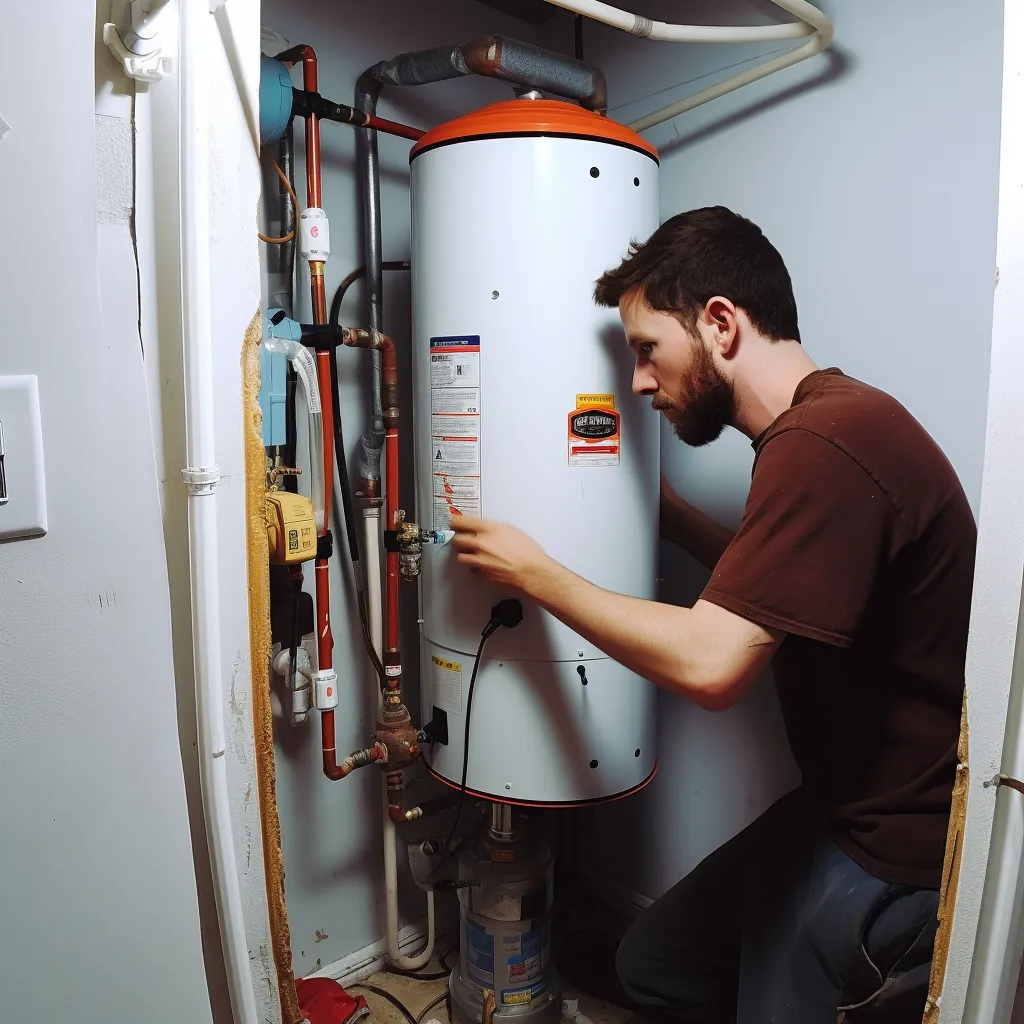
Keep the water heater and pipes free of sediment buildup
One crucial aspect of maintenance is keeping the water heater and pipes free of sediment buildup. Over time, minerals and other deposits can accumulate within the tank, leading to reduced efficiency and potentially damaging the unit. To prevent these issues, it is recommended to flush the water heater periodically. Flushing the water heater involves draining all the water from the tank, along with any sediment that has settled at the bottom. This process helps remove the buildup and prevents it from causing further problems. It is important to seek professional assistance for this task to ensure it is done correctly and safely.
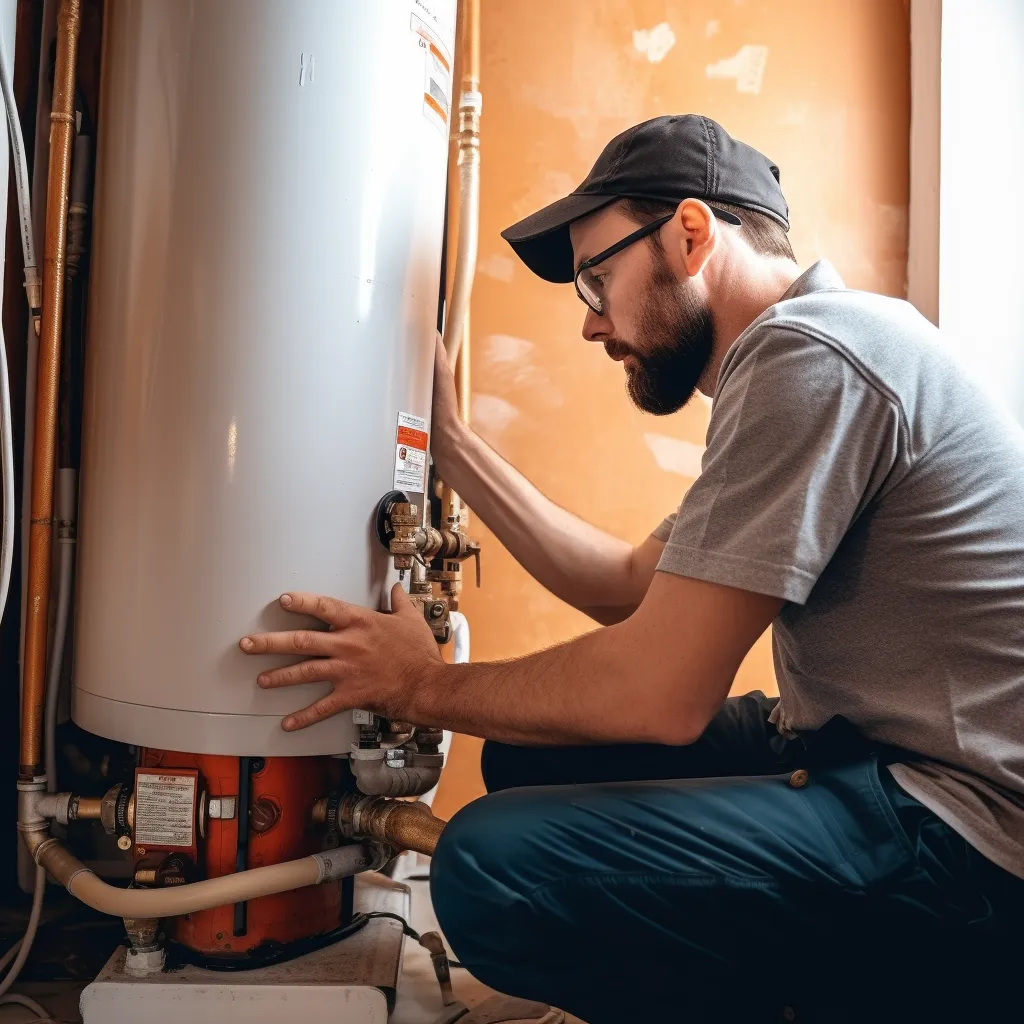
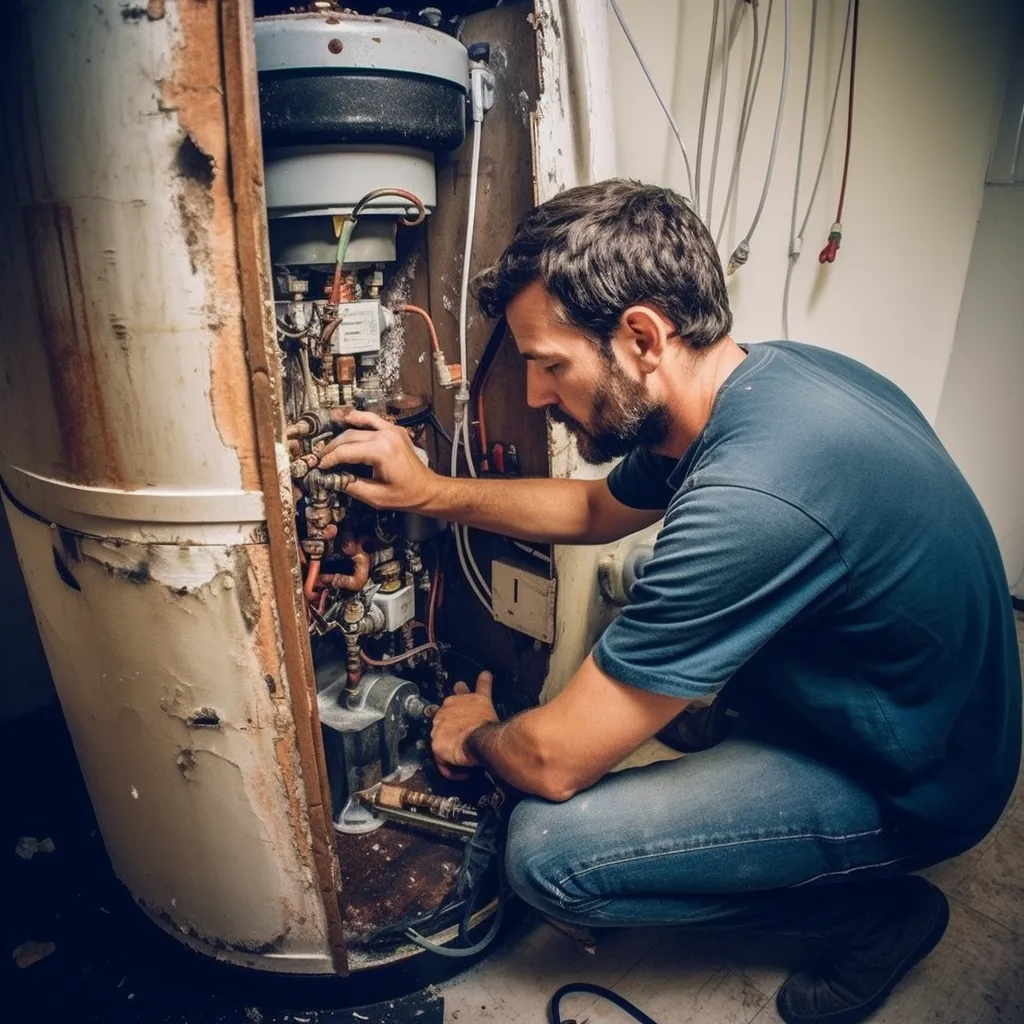
Keep the water heater burner assembly clean
Regular cleaning of the burner assembly not only ensures the efficient operation of your water heater but also improves its lifespan. A dirty or clogged burner assembly can result in reduced heating efficiency and increased energy consumption. This can ultimately lead to higher utility bills and a less reliable supply of hot water. Additionally, a neglected burner assembly may also struggle to ignite or stay lit, causing intermittent heating issues. To prevent these problems, it is recommended to clean the water heater burner assembly at least once a year. Start by turning off the gas supply and disconnecting the electricity to the heater. Remove the burner access cover and carefully inspect the assembly for any buildup of dust, dirt, or debris. Using a soft-bristle brush or a vacuum cleaner with a brush attachment, gently remove any accumulated dirt from the burners, pilot tube, and gas ports. Be cautious not to damage or dislodge any components during the cleaning process. If necessary, you can also use compressed air to blow away any stubborn residue. After cleaning, replace the burner access cover and ensure it is securely fastened. Turn on the gas supply and electricity, and relight the pilot light following the manufacturer's instructions. Monitor the water heater for any unusual behavior, such as unusual noises or inconsistent heating, and contact a professional if you notice any issues.
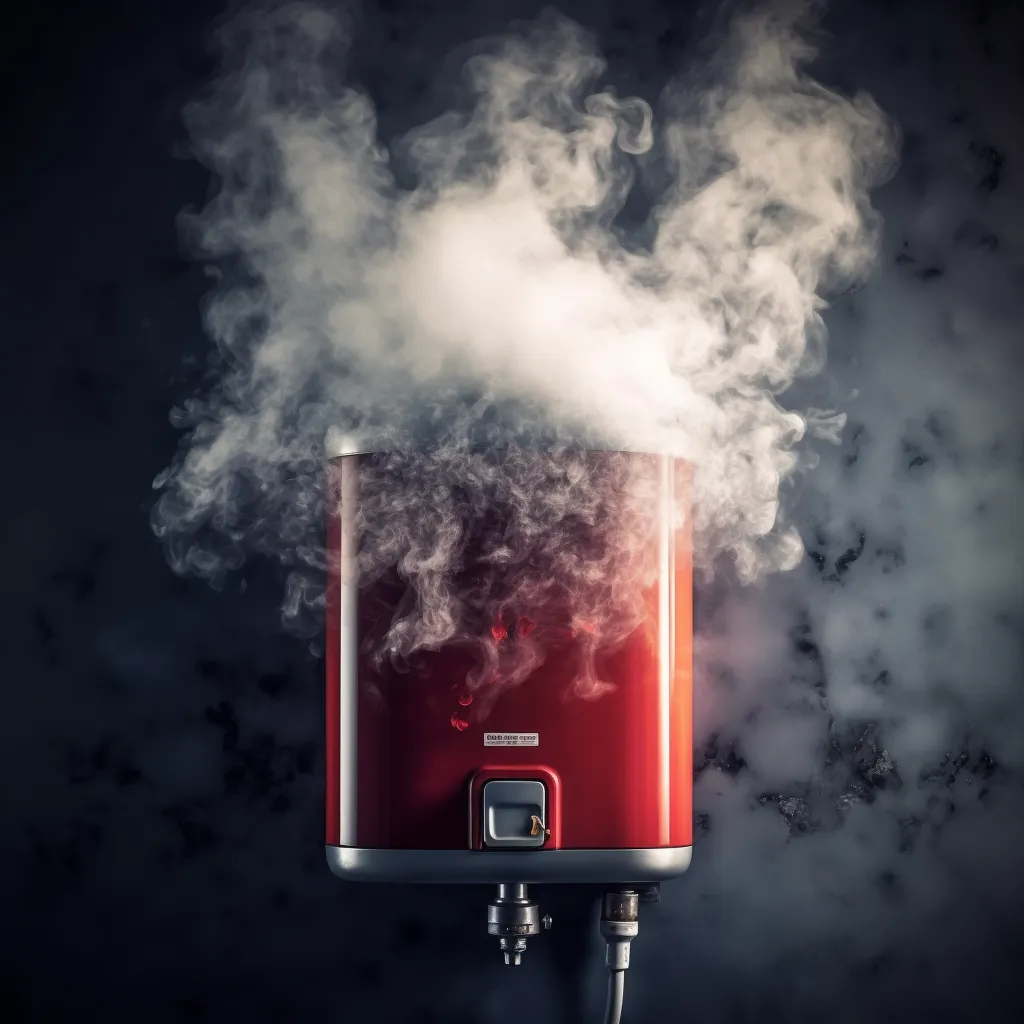
Research the variety of water heater options
When it comes to water heaters, homeowners should have knowledge about the different types available and the specific maintenance requirements for each. Understanding these aspects is crucial for making informed decisions about water heater replacement.
Traditional storage tank water heaters store and heat a large tank of water, allowing hot water to be readily available. They require regular maintenance, such as flushing the tank to remove sediment buildup, to ensure optimal performance.
Tankless water heaters, also known as on-demand water heaters, provide hot water as needed. These heaters heat water directly without the need for a storage tank. Tankless water heaters are energy-efficient and require less maintenance compared to traditional storage tank heaters. However, they may require periodic descaling to remove mineral deposits from the heating element.
Another type of water heater is the heat pump water heater, which uses electricity to transfer heat from the surrounding air to heat the water. These heaters are highly efficient, but they may require regular cleaning of the air filters to maintain optimal performance.
Solar water heaters utilize energy from the sun to heat water. These systems have a storage tank and require regular maintenance, such as checking the solar panels for damage and ensuring proper insulation on the pipes, to maximize efficiency.
Homeowners in Murfreesboro should have a good understanding of the various types of water heaters available and the specific maintenance requirements for each. This knowledge will help them make informed decisions when it comes to water heater replacement and ensure optimal performance and efficiency of their water heating systems.
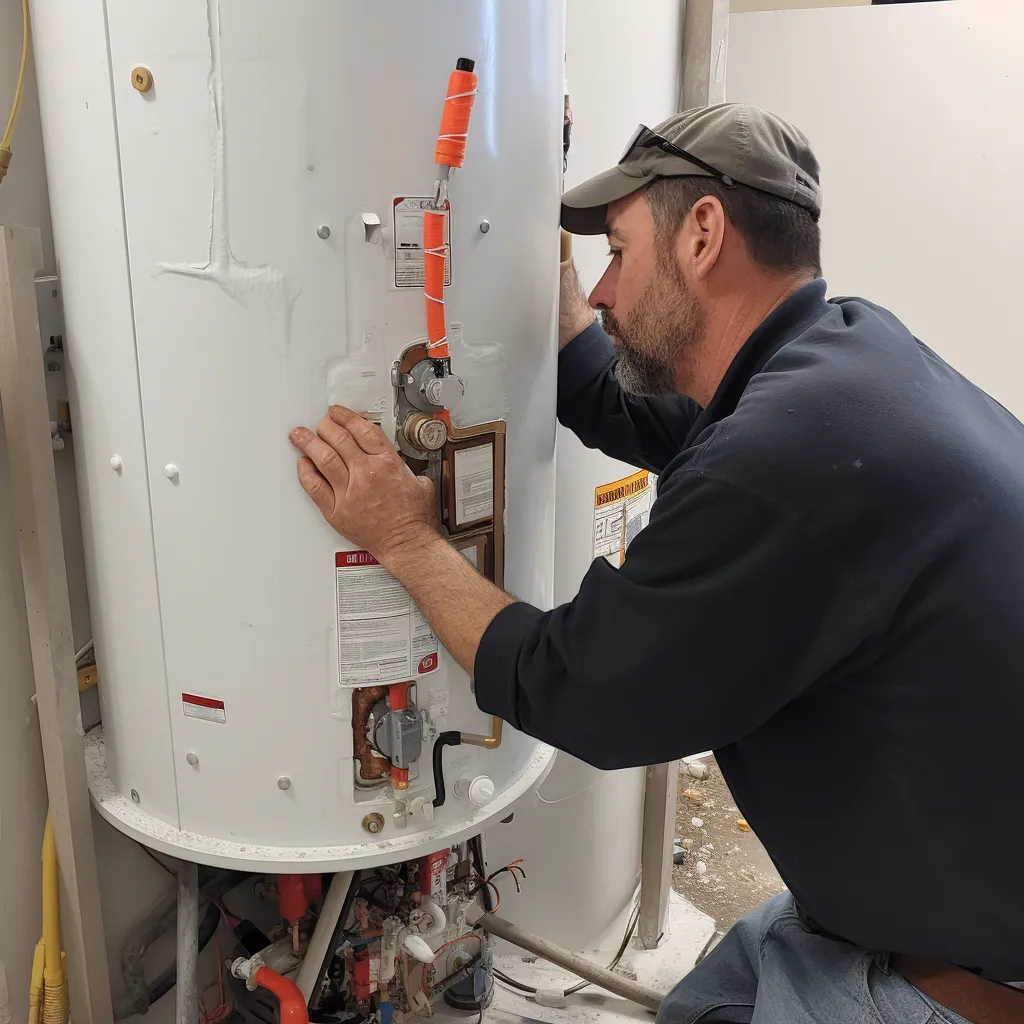
Troubleshooting tips to help you identify water heater problems
If your water heater is giving you trouble, such as insufficient hot water, temperature fluctuations, unusual sounds, or leaks, there are a few steps you can take before reaching out to a professional. By troubleshooting the issue, you may be able to identify and potentially fix the problem yourself, ultimately saving both time and money. Start by examining the heating element, making sure it's functioning correctly. Next, verify that the thermostat settings are accurate. Another important step is to flush out any accumulated sediment in the tank. Lastly, don't forget to thoroughly inspect your water heater for any leaks. By following these simple guidelines, you may be able to resolve your water heater problems effectively.
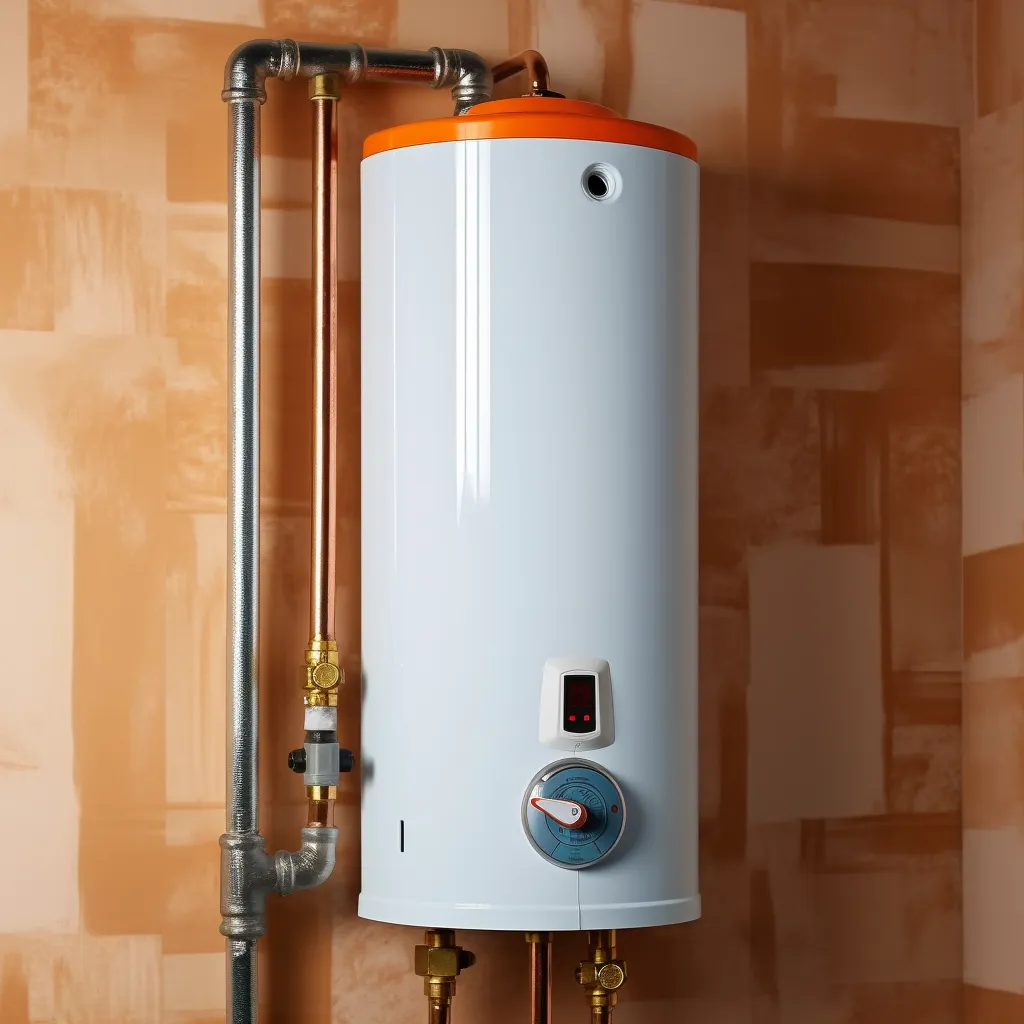
Benefits of hiring a licensed water heater expert
When it comes to water heater replacement, hiring a licensed professional can offer several benefits:
A licensed water heater professional has the necessary training and expertise to handle the complexities of the job. They are equipped with the knowledge and skills to assess the condition of your water heater and determine if a replacement is necessary.
Licensed professionals have the experience to efficiently and effectively carry out the entire replacement process. They are aware of the necessary safety precautions and regulations surrounding water heater installations, ensuring that the job is done correctly and in compliance with local codes. This can provide peace of mind, knowing that your new water heater will be installed properly and function optimally.
Hiring a licensed water heater professional can save you time and hassle. They have access to the right tools and equipment, allowing them to complete the replacement quickly and efficiently. This means less inconvenience for you and your family.
Working with a licensed professional often comes with the advantage of warranties or guarantees on the installation. In the event of any issues or malfunctions with your new water heater, you can rely on the expertise of the professional and the provided warranty to get the problem resolved.
Choosing a licensed professional for water heater replacement in Murfreesboro can potentially save you money in the long run. A properly installed and functioning water heater is likely to be more energy-efficient, leading to lower utility bills. Additionally, a professional installation can help prevent future problems and costly repairs.
Research is important
When it comes to water heater replacement in Murfreesboro, research plays a crucial role. Keeping in mind the specific needs and requirements of the residents, it is vital to conduct thorough research before making a decision. This research may include understanding the different types of water heaters available, evaluating their energy efficiency ratings, and comparing prices offered by various suppliers. Additionally, research can also help homeowners identify reputable and experienced professionals who specialize in water heater replacement. By investing time in research, homeowners can make an informed decision and ensure they choose the right water heater replacement option for their needs.
Contact Us
GET IN FULL TOUCH
PHONE: 615-671-4918
EMAIL:
steven@waterheatermurfreesboro.com
Rutherford Plumbing Heating & Cooling
Murfreesboro, TN 37128
